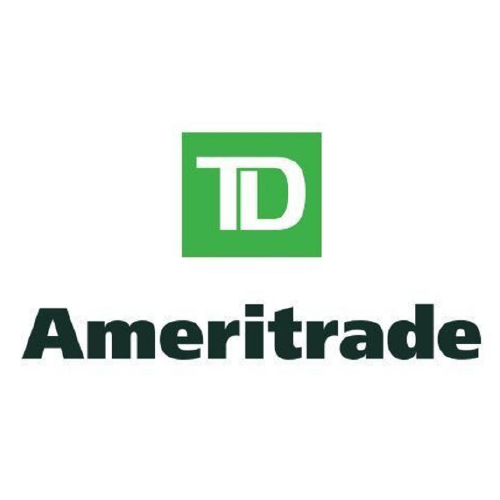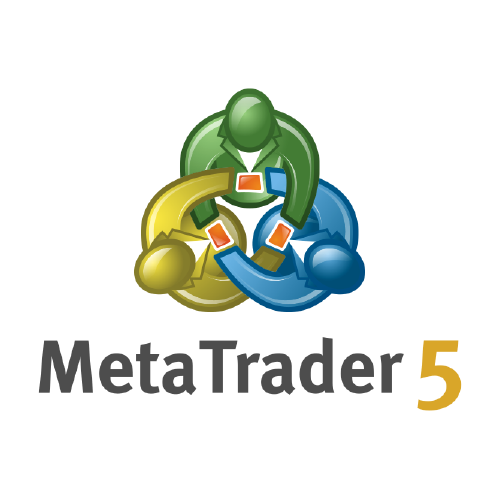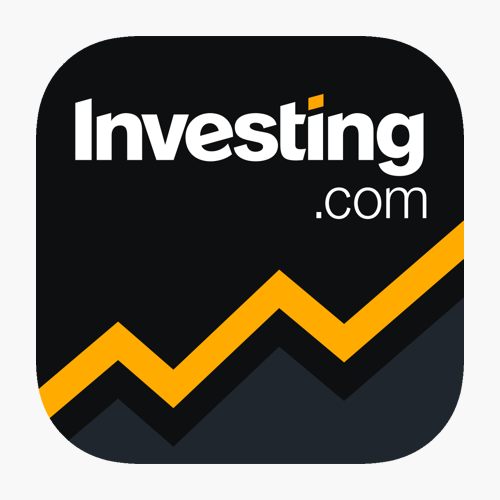
What Is a CFD Broker?
They are cash-settled, which means the broker will pay out the difference between the opening and closing prices of an underlying stock (or other instrument) rather than delivering any physical goods.
They're designed to replicate the benefits of owning the underlying instrument, without having to actually own it.
CFDs only require a small deposit when opening a position (to cover potential losses), as opposed to having to pay in full for a share.
This means that CFDs can offer tremendous leverage, which can magnify gains (and losses).
It also gives the investor the ability to speculate the price of movement over a short-term, for stocks, commodities and forex.
CFD trading is an advanced trading strategy that is not allowed in the US.
The advantages of using a CFD broker are that:
- As you are not classed as a full-time trader, any money you make from a CFD trade is tax-exempt
- The short-term financial rewards allow you to make bigger long-term investments
- You have the potential to take a position in a market and gain profit regardless of fall or rise
The Best Trading Platforms
Let’s take a look at the best trading to earn more.
1. Liteforex
Best for: Learning from others
Liteforex is one of the most popular online reliable brokers over the world. Over the past 15 years, it has developed a strong reputation for beginners and experienced investors alike, has a minimum $100 deposit.
The Liteforex app aims to use easy for every clients. It is available on Google Play and the App Store and allows you to move seamlessly between devices.
It’s innovative features include:
- Pre-programmed one-click trading
- Copy Trader – Copy the trades of others in real-time
- Its own social networking platform
- Pre provided investment strategies which they call Copy Portfolios
The app boasts the ability to allow you to place online trades even if the trading platform is down.
The information is being presented without consideration of the investment objectives, risk tolerance, or financial circumstances of any specific investor and might not be suitable for all investors.
2. FXTM
The FXTM Platform itself is intuitive and easy to use, suitable for those just getting into trading and those more experienced alike.
It is designed to offer a full replication of an institutional trading environment including depth of market.
With advanced risk management and order functionality, this is a detailed platform for trading stocks.
The FXTM app offers a premium range of order types, with advanced technical analysis tools.
You can set up push and email notifications for the important things that you want to know in relation to your stock trading needs – such as price alerts and trade statistics.
Within the app, you can:
- Complete a range of order types
- Work with all your accounts in one app
- Understand detailed trade analysis
- Review detailed order tickets – base currency dollar value and pip distance
As a platform, there are comprehensive educational videos and explanations of symbols, so you can find optimized processing for expert advisors and indicators.
The information is being presented without consideration of the investment objectives, risk tolerance, or financial circumstances of any specific investor and might not be suitable for all investors.
3. FBS
Best for: CFDs
This app is designed for those wanting to trade outside of the US. It is considered one of the best for CFDs on shares and has a minimum $100 deposit.
There are low trading fees but considerable fees for inactive users.
The educational section is average, as are the research tools. However, the app is easy to use overall.
This app is recommended for those familiar with CFDs and who are actively trading. Reviews of the app show that users like the:
- Account-opening process
- Deposit and withdrawal features
- Customer service
- Actual trading platform
The information is being presented without consideration of the investment objectives, risk tolerance, or financial circumstances of any specific investor and might not be suitable for all investors.
Key Points to Consider When Choosing a CFD Broker
Is the Broker Regulated?
Other EU based authorities will also be governed by similar organizations, but as Brexit's full effect is still to take place, it is advisable to find one that is FCA regulated.
Being listed on the stock exchange is also desirable. It suggests that the broker is fully transparent with their financial records. These financials should also be made available for public viewing.
What Are the Trading Fees?
While researching, calculate the fees involved in relation to the amount of money you will realistically be trading with. Demo accounts which allow you to trade without using real money should help you with this.
Tradeable Assets
The Trading Platform
It should have educational material, research tools, be easy to use and to look at – especially if you are trading on your mobile phone.
How Good Is the Customer Service?
Some brokers offer 24/7 help, while some are closed on weekends. Are there certain days when you are more likely to need to support? Do you prefer a call centre or live chat?
Final Thoughts
Before deciding on a CFD broker, take advantage of any trials or demo accounts so you can get a full feel for the platform. The key points to remember are:
- It is regulated
- It is transparent with fees and offers good value
- It has an excellent trading platform
Myanfx-edu does not provide tax, investment or financial services and advice. The information is being presented without consideration of the investment objectives, risk tolerance, or financial circumstances of any specific investor and might not be suitable for all investors.
Financial Trading is not suitable for all investors & involved Risky. If you through with this link and trade we may earn some commission.

Spread Betting Brokers
- What Is Spread Betting?
- What Is the Difference Between Financial and Forex Spread Betting?
- Key Points to Consider When Choosing a Spread Betting Broker
What Is Spread Betting?
Spread betting is when you put a wager or place a bet on a product or market and the outcome of its success, without taking ownership of said product/market. The monies, or winnings, received after the bet is placed is determined by whether an asset’s value increases or decreases.
For instance, you place a bet on a well-known financial market and predict that it will increase from its current price within the next week. You open a spread betting position on the asset, and if it rises you’ll make a profit, and if it falls you’ll make a loss. The same also applies to whether you believe the price will fall and place a bet on that particular outcome.
What Is the Difference Between Financial and Forex Spread Betting?
Financial spread betting is a by-product that is used to figure out the increasing or decreasing value on financial products, whereas forex spread betting is about the purchasing and selling of one currency in exchange for another currency.
Some people prefer spread betting as they do not have to take ownership of the product and can just place a simple bet on their chosen product – which might seem more appealing to early traders.
If you would prefer to partake in forex spread betting over a financial spread bet, you can take advantage of using leverage to complete the trade. Leverage lets you borrow money from investors, or brokers, to finance the exchange.
The key differences between financial spread betting and forex spread betting are:
- Forex trading only allows you to work with currency-based trades and foreign exchange, whereas financial spread betting offers you a wider range of markets to bet on.
- There are no direct trades with financial spread betting like there is with forex. For forex deals, you must work with currency exchanges directly.
- Financial spread betting can be tax-free in some areas – this will depend on where you are trading. For instance, you do not have to pay tax for bets in the UK.
- You can take advantage of leverage and receive finance from investors when you are doing a forex trade.
Key Points to Consider When Choosing a Spread Betting Broker
When you are choosing a spread betting broker, there are a few things you must consider before placing your bet.
- Trust– It is important you do your homework and have faith in the broker you are going to use to place your bet. After all, you could be betting a large amount of capital on a certain market.
- Experience– How long has the brokerage been going for? Do they have experience in spread betting in the market you have been speculating?
- Cost– To make big on your return you want to keep your costs low, which means you need to think carefully about how much commission the broker wants in return. To begin with, you need to think about the spread, which is the difference between the bid price and the offer cost of the asset you are trading. A broker will charge for the opening and closing of a bet for you, so to make a profit you will need to look for the lowest spread.
- Customer service– As with most industries, you might have had good customer service from a spread betting provider in the past and wish to proceed with this provider due to positive interactions. Are they available all day long? For some bets, you might want to liaise with your broker throughout the day.
- The platform– The trading platform a broker uses is important as the customer journey will help new spread betting traders get started. This will also help with time and accessibility. Is the platform mobile friendly? Does it offer useful tools if a customer service agent is not available?
- Tradeable assets– How many markets does the broker trade in and do they offer financial spread betting and forex? It is good to know this before placing your bets, especially if you are looking for a broker to have a long relationship with.
- Regulation– Check whether the broker is regulated. The broker must be clear about their financial history. The location of the broker will determine which governing body they are regulated by. For example, if you are using an EU-based broker, they should be regulated by the Financial Conduct Authority (FCA).
There are many top brokers around the world, some you may have heard of, and newer brokers who might focus on specialist markets. You must do your homework on each broker to know which one suits you and your bet.
Within this article, we will provide you with the top 10 spread betting brokers and spread betting platforms to help you on your journey, whether you are a pro or a beginner.
How to Spread Bet
- What Is Spread Betting?
- How Does Spread Betting Work?
- Spread Betting on a Stock Price Example
- What are the Advantages of Spread Betting?
- What are the Risks of Spread Betting?
- How Do I Start Spread Betting?
- How to Choose the Right Spread Betting Broker
- What Markets Can I Spread Bet On?
- What Are the Costs of Spread Betting?
- Things to Consider When Spread Betting
- Final Thoughts
What Is Spread Betting?
Spread betting is one of the easiest types of trading. It allows the trader to speculate without having to own the assets. Spread betting also allows you to profit from market growth and fall.
It differs from CFD trading as CFD involves exchanging the difference in price from open to close. Spread betting involves investing an amount of money per point of price movement.
It is tax-free, cost-effective and does not require the use of a physical broker or market maker.
You make a ‘spread’ on a live, underlying market price and speculate whether it will rise or fall.
How Does Spread Betting Work?
There are three main features of spread betting:
- The spread – The difference between the offer and bid
- The bet size – The amount you want to bet per unit
- The bet duration – The amount of time before your bet expires
Bets can last for a day or a few months. You can close your bet at any time before its expiry, assuming that it is still open to trading.
The profits are made from correctly guessing which way the market will go – up or down. You don’t have to guess the exact amount, just the direction.
For a traded asset, the price quoted shows the difference between the ask and the bid price.
If you are betting a price will increase in value, you buy or go long (bullish) the asset at the ask price.
If you are betting the opposite way, you sell short (bearish) at the lowest quoted price.
Two factors determine the spread width:
- Volatility – The risk in the market’s movements
- Liquidity – The security volume of daily trading
Essentially, popular assets in volatile markets result in a larger spread.
Spread Betting on a Stock Price Example
You want to go bearish on a Walgreens stock price.
The bid/sell price is 225.98 cents.
The ask/buy price is 227.65 cents.
The spread is 167 cents.
A point is 1 cent, and you bet $10 per point.
You place your spread bet of sell $10 per point of Walgreens.
You then put up your margin deposit, which is what the broker requires.
After two hours of trading, the stock price declines by 0.32 cents.
You choose to close your bet and take the profit – you close at the ask price.
When the bet is closed, the profit and margin are immediately released, ready for you to reinvest or withdraw.
What are the Advantages of Spread Betting?
The advantages of spread betting are:
- Entering or exiting bets is easy – you don’t need to be a professional trader
- You don’t pay any tax on the money you make
- You have access to a wide range of markets from the comfort of your own home
- There is a host of sophisticated platforms to help you trade
- There are no commission fees and low transaction costs
- Spread betting offers leverages
- You can start with only a small amount of investment
- You profit from loses
- It’s a great way to diversify your portfolio
What are the Risks of Spread Betting?
All types of trading and investing come with risk. Spread betting is considered one of the riskiest forms of trading, with no limit to the amount of money you can lose.
Start small and never invest more than you can afford to lose.
Leverage can work against you just as much as it can work for you. Highly leveraged trades always carry the chance of incurring losses that go beyond your initial investment.
Unanticipated economic events such as a change in leadership or the 2020 pandemic cause fluctuations in the market. They cause immediate effects on your bets and can have long-lasting effects. Some economies can take years to recover.
The Non-Farm Payroll (NFP) report is an economic announcement that is known to cause panic on the stock market, mainly forex trading.
Within minutes, the price of currency pairs moves 100 to 200 pips. A $10 pip instantly experiences a profit or loss of $1,000 or more.
Trading gaps occur every day as markets usually close at around 16:30. It is when a security opens much higher or lower than its closing price. Holding bets overnight can increase your risk.
How Do I Start Spread Betting?
There are five steps to spread betting:
- Open an account with a broker
- Decide which markets you want to trade
- Decide if you want to buy or sell
- Use your chosen trading platform to make your bets and set stop-loss orders
- Calculate your profit, close bets and reinvest
How to Choose the Right Spread Betting Broker
When choosing a spread betting broker, you want to consider:
- Are they registered, regulated and do they offer a loss protection scheme
- How long have they operated – have they survived previous recessions?
- Are the trading platforms user-friendly and up to date?
- Do they have tools to help with your financial goals?
- What do reviews say?
- What market do they trade?
- Do they offer educational tools and customer service?
Myanfx-edu does not provide tax, investment or financial services and advice. The information is being presented without consideration of the investment objectives, risk tolerance, or financial circumstances of any specific investor and might not be suitable for all investors.
Financial Trading is not suitable for all investors & involved Risky. If you through with this link and trade we may earn some commission.

What Markets Can I Spread Bet On?
For spread betting, there are no limits on the markets you have access to.
- Stocks are the most common type of investing. While you don’t own the stock or receive a dividend, your spread bet provider will adjust your account when needed. Spread betting also allows you to take part in foreign markets.
- Market indices such as the FTSE 100 and S&P 500 allow you to spread bet across an entire market, foreign or domestic. There are also sub-indices such as technology, healthcare, or real estate.
- Commodities such as coal and cotton. They are traded the same as stocks, but their prices are affected differently. Stock prices depend on the economy, while commodities prices depend mostly on the weather
- ETFs have similar advantages to spread betting in that you don’t own the physical stock. Spread betting on ETFs allows you the most trading freedom.
- Forex and
- Sports– where you bet on a specific outcome of a sporting event.
What Are the Costs of Spread Betting?
There are no commission fees with spread betting, which is why it is so appealing to many traders. However, just because brokers don’t take a commission doesn’t mean there are no other fees.
It is often the case that the fee is built into the bid-ask price. In other words, the broker marks up the price in the same way a brand decides its RRP.
Asset values can change second to second, and it is in the broker’s best interest to keep those prices up to date.
As an active trader, the spread is your highest cost.
However, there are three other costs that you should take into consideration:
1. Overnight Funding on Rolling Bets
This charge is really two as it is a fee to roll your daily bet and the interest charge to keep the bet overnight.
The overnight interest fee is calculated using a standardized rate such as the LIBOR.
It is calculated as:
Long: percent rolling fee + LIBOR
Short: percent rolling fee – LIBOR
2. Special Order Fees
These are fees placed on guaranteed stop-loss orders.
3. Futures Rollover Cost
Similar to rolling bets, except here you have chosen to take the bet past its expiration into another period.
Depending on the broker you choose, there may be other fees such as:
- Withdrawal costs
- Inactive user charges
- Charges for different types of trading
- Minimum deposit
Things to Consider When Spread Betting
The most important thing to consider when spread betting is to never go beyond your limits.
Yes, high-profit margins are appealing, but you can lose as quickly as you can gain.
Pick your limits and stick to them.
Reduce risk by:
- Knowing the market you are trading in– Commodities trade differently from crypto. Don’t just rely on your platform for information. Take the time to learn about all the differences for yourself.
- Familiarizing yourself with economic reports such as GDP, CPI, PPI and Central Bank interest rates announcements.
- Having a trading strategy that you understand and can implement with clear goals.
- Understanding trading terms and values such as ‘leverage’ and ‘margins’.
- Taking advantage of risk management tools such as stop-loss orders, guaranteed stop-loss orders and limit orders.
- Creating a diverse portfolio with different types of trading and markets.
- Taking advantage of the demo accounts available on your trading platform.
Final Thoughts
As with all types of trading, spread betting has its advantages and disadvantages.
The advantages are that costs are often low and it is an easy trading concept.
The disadvantage is that you can lose a lot of money.
Before investing, take the time to learn about trading concepts, trends and markets.
If your chosen platform has a demo account, try it out. You shouldn’t jump straight into a trade without seeing the process in action.
Always follow the three day trading rules:
- Go with the flow and trade when everyone is
- Diversify your portfolio as much as you can
- Minimize your risk
There is nothing wrong with playing it safe.
Myanfx-edu does not provide tax, investment or financial services and advice. The information is being presented without consideration of the investment objectives, risk tolerance, or financial circumstances of any specific investor and might not be suitable for all investors.
Financial Trading is not suitable for all investors & involved Risky. If you through with this link and trade we may earn some commission.

Best for: Experienced traiders With over 2,000 stocks, Plus500 is an easy-to-use platform with lots of educational material,

Vantage FX was founded in 2008 to be a transparent forex broker and has grown

Best for: Experienced traders IG is regulated by the FCA and BaFIN in Germany. It is
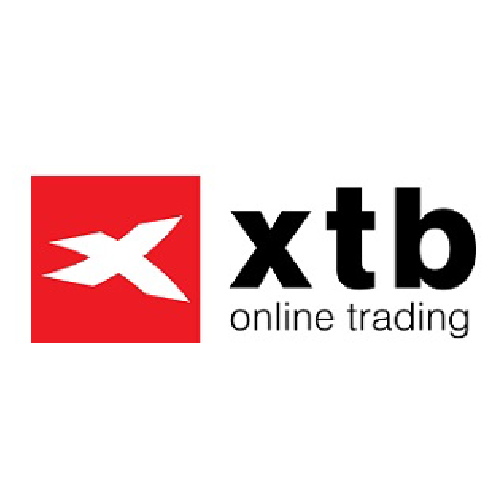
Best for: International trading XTB is a trusted all-around broker, established in 2002. It is regulated
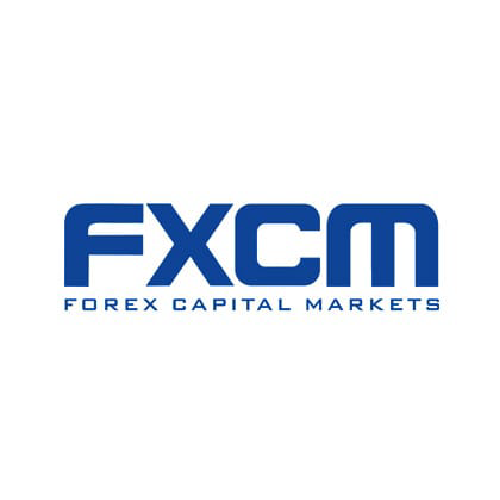
Best for: Forex trading Established in 1999 and owned by Jefferies Financial Group, FXCM is both
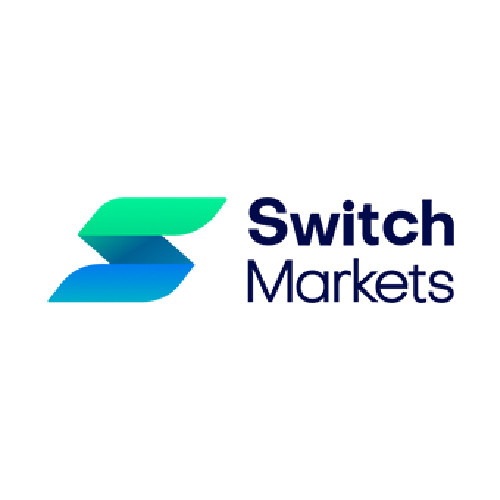
With Switch Markets you can trade Forex, CFDs, Crypto, Commodities and more on either a live

Best for: Those who value easy account opening and free deposits and withdrawals IC Markets is

Best for: Zero commission and all-round broker eToro features include: Access to over 800 stocks No commission

Best for: Research tools and advanced trading CMC Markets has received awards for having the best

Best for: Spread betting City Index is an award-winning broker that offers low forex and stock

Capital.com is another online CFD and stock broker designed specifically for experienced investors. The site

Best for: Tight spreads and low fees Pepperstone requires no minimum deposit and offers low trading fees.
Want to Trade Online?
Easy Trading Platform
Copy Experienced Traders
Trade from Your Pocket
Trade with Liteforex
- Best Mobile App
- Free Trading Courses
- Low Fees
- Fast Execution
- 24/7 Customer Support
CFD Trading on financial markets carries risks. Before deciding to trade, you need to ensure that you understand the risks involved.





